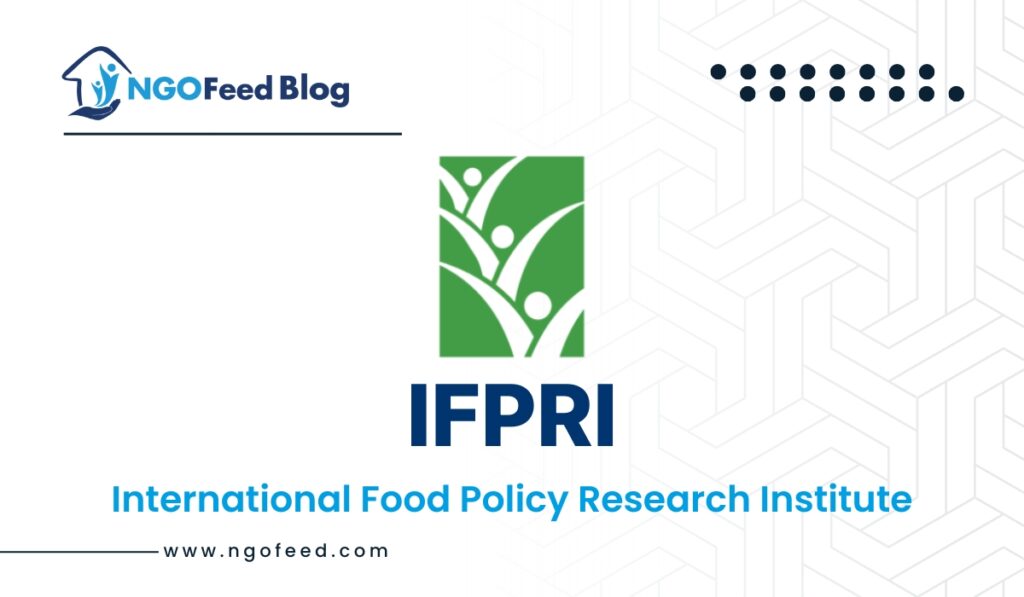The IFPRI Full Form is International Food Policy Research Institute (IFPRI) is a global agricultural research organisation established in the early 1970s to advance knowledge of national agricultural and food policy and encourage the adoption of agricultural technology breakthroughs. Additionally, IFPRI was created to clarify how agriculture and rural development fit into a country’s overall development strategy.

Table of Contents
History
IFPRI conducts research on food policy and disseminates it through a variety of projects, including hundreds of publications, bulletins, conferences, and other events. On March 5, 1975, IFPRI was established as a non-profit, non-stock corporation in the District of Columbia. Its first research bulletin was published in February 1976.
In addition to having offices in a number of developing nations, such as China, Ethiopia, and India, IFPRI also employs research personnel in numerous other nations. The majority of the study is conducted in developing nations in Asia, Africa, South America, and Central America.
IFPRI Overview
| IFPRI | International Food Policy Research Institute |
| Headquarters | Washington, D.C |
| Formation | 1975 |
| Managing Director | John Swinnen, Director |
| Method | Social science research |
| Website | www.ifpri.org |
| Work | 50 countries |
| Official languages | English |
IFPRI Work
Food systems on a global, regional, and national level face enormous obstacles and need to undergo significant changes. More than ever, addressing these issues will need a systems-oriented, interdisciplinary strategy to change food systems so they function sustainably for all people. The IFPRI Strategy Refresh 2018-2020 focuses on five priority research areas and builds on the solid foundation of work created under the Institute’s 2013-2018 strategy.
- Fostering Climate-Resilient and Sustainable Food Supply
- Promoting Healthy Diets and Nutrition for All
- Building Inclusive and Efficient Markets, Trade Systems, and Food Industry
- Transforming Agricultural and Rural Economies
- Strengthening Institutions and Governance
Gender is taken into account in all research topics and throughout the whole research process in each of the five strategic research areas.
The regional and national programmes of IFPRI are essential in meeting the demand for food policy research and providing comprehensive assistance for nation-led development.
Structure of IFPRI
- Office of the Director General
- Eastern and Southern Africa Office
- South Asia Office
- West & Central Africa Office
- Communications & Knowledge Management Division
- Finance and Administration Division
- Development Strategy and Governance Research Division
- Environment and Production Technology Research Division
- Markets, Trade, and Institutions Research Division
- Poverty, Health, and Nutrition Research Division
- Partnership, Impact and Capacity Strengthening Division
Funding of IFPRI
- Funding sources for IFPRI include national governments, private foundations, universities, and non-governmental organizations.
- IFPRI also receives funding from the CGIAR Trust Fund.
- Partnerships with donors contribute to IFPRI’s mission of achieving a world free of hunger and malnutrition.
- IFPRI discloses its funders in its Annual Report.
Impact
Numerous obstacles must be overcome in order to evaluate policy-oriented research, including the inability to quantify the impact of information and ideas in terms of decreased poverty and/or increased income or to attribute a change in these figures to a particular study or research initiative.
Despite these obstacles, studies reveal that IFPRI research had an impact on national-level research as well as the direction of global policy, for instance in the fields of trade and biodiversity (which influenced the International Treaty on Plant Genetic Resources) (with respect to the Doha Development Round of trade negotiations).
The global food price crisis of 2007–2008 is another illustration of how the IFPRI has influenced policy development. The recommendations resulting from the swift collection of pertinent research by IFPRI were incorporated into the Comprehensive Framework for Action on Food Security of the United Nations.
IFPRI oversees a number of partnerships that bring together many stakeholders to have an impact on policies that affect hunger, poverty, and the food condition of the underprivileged. The most recent of these programmes is Compact2025, a collaboration that creates and distributes evidence-based recommendations to legislators and other decision-makers with the goal of eradicating hunger and undernutrition in the next ten years.
Controversy surrounding IFPRI
- Connections to Chinese government, Pakistani expats, and multinational agribusiness criticized.
- Criticism of research publications being cited by opponents of genetically modified organisms (GMOs) in agriculture.
- IFPRI describes itself as neutral on GMOs, neither advocating for nor opposing them.
- Despite criticism, CGIAR and IFPRI are recognized for supporting smallholders and poor farmers as central to their mission.
Conclusion
The International Food Policy Research Institute (IFPRI) plays a crucial role in tackling the tough challenges of global food security. While it’s faced some controversies and criticisms, IFPRI stays focused on its mission: making sure everyone has enough to eat, promoting healthy diets, and supporting those who need it most. By working together with partners and communities, IFPRI is making a real difference in shaping policies and paving the way for a better, fairer food future for everyone.
Frequently Asked Questions (FAQs)
What is the Full form of IFPRI?
IFPRI Full form is International Food Policy Research Institute.
When IFPRI is formed?
IFPRI was formed in 1975.
Where is the headquarter of IFPRI?
The headquarters of IFPRI is in Washington D.C
What is the goal of IFPRI?
The IFPRI Goal is to advance knowledge of national agricultural and food policy and encourage the adoption of agricultural technology breakthroughs

